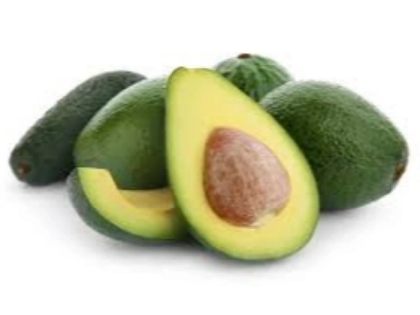What Food Is Better Than Avocado?
In addition to being a delicious food, avocados are among the richest providers of fiber, vitamin A, potassium, folic acid and healthy monounsaturated fats. It also reduces harmful cholesterol levels and supports a healthy digestive tract. Some people, however, are unable to consume it due to digestive problems or because they don't like the taste. Fortunately, there are meals that can take their place and provide comparable benefits.
1. Eggs
 Healthy alternatives exist for people who don't like avocado for its flavor or texture or who have an allergy that prevents its consumption. These consist of silken tofu, soaked cashews or pistachios for smoothies, and edamame. For flavor and nutrition, you can also add them to guacamole, salads, and soups.
Breakfast should consist of two hard-boiled eggs and half an avocado. This will ensure you get enough protein, which is vital to the health and functioning of your body. Additionally, the combination strengthens the heart and digestive system and increases the absorption of nutrients, including provitamin A carotenoids.
The B vitamins found in eggs support healthy vision, and this meal combination provides a rich supply of choline and healthy fats, both of which support brain function.
Healthy alternatives exist for people who don't like avocado for its flavor or texture or who have an allergy that prevents its consumption. These consist of silken tofu, soaked cashews or pistachios for smoothies, and edamame. For flavor and nutrition, you can also add them to guacamole, salads, and soups.
Breakfast should consist of two hard-boiled eggs and half an avocado. This will ensure you get enough protein, which is vital to the health and functioning of your body. Additionally, the combination strengthens the heart and digestive system and increases the absorption of nutrients, including provitamin A carotenoids.
The B vitamins found in eggs support healthy vision, and this meal combination provides a rich supply of choline and healthy fats, both of which support brain function.
2. Yogurt greco
 Some people just don't think avocados are right for them. Some people may need to find an avocado substitute due to their dislike of the texture, taste, or gastrointestinal irritation they produce.
Luckily, there are many choices. Some meals that can fill the avocado gap are as follows:
yogurt greco
In addition to being rich in beneficial monounsaturated fats, yogurt is also rich in calcium and vitamin D. Dress veggies like carrots and peppers (rich in vitamin A), eggs, and even smoked salmon with a yogurt dip or dip.
Some people just don't think avocados are right for them. Some people may need to find an avocado substitute due to their dislike of the texture, taste, or gastrointestinal irritation they produce.
Luckily, there are many choices. Some meals that can fill the avocado gap are as follows:
yogurt greco
In addition to being rich in beneficial monounsaturated fats, yogurt is also rich in calcium and vitamin D. Dress veggies like carrots and peppers (rich in vitamin A), eggs, and even smoked salmon with a yogurt dip or dip.
3. Chia seeds
 Although avocados are among the healthiest foods available, they can be expensive and difficult to obtain. Fortunately, there are many avocado substitutes that have comparable health benefits. Some of these include bananas (which work well in smoothies), chia seeds, hummus, and pesto.
Another excellent avocado substitute is edamame, which is made from boiled soybeans and contains heart-healthy lipids, proteins, and fiber. Use it as a dip or mix it with Mexican spices to make guacamole without avocado.
One avocado and one cup of edamame have about the same calorie content. Eat it alone as a snack or add it to soups and salads. Also, consider enriching your meals with a spoonful of olive or avocado oil. Heart-healthy monounsaturated fats are present in these healthy fats.
Although avocados are among the healthiest foods available, they can be expensive and difficult to obtain. Fortunately, there are many avocado substitutes that have comparable health benefits. Some of these include bananas (which work well in smoothies), chia seeds, hummus, and pesto.
Another excellent avocado substitute is edamame, which is made from boiled soybeans and contains heart-healthy lipids, proteins, and fiber. Use it as a dip or mix it with Mexican spices to make guacamole without avocado.
One avocado and one cup of edamame have about the same calorie content. Eat it alone as a snack or add it to soups and salads. Also, consider enriching your meals with a spoonful of olive or avocado oil. Heart-healthy monounsaturated fats are present in these healthy fats.
4. Nights
 Avocados are high in calories but also an excellent source of good fats. Eat them sparingly, and if you're making guacamole or cooking with avocado oil, choose a low-calorie alternative.
Edamame is also a fantastic alternative to avocado. Protein, including all the important amino acids and vitamins like K, are abundant in this soybean. It is also low in trans and saturated fats and a high source of heart-healthy monounsaturated fats.
Consuming a small amount of nuts regularly could improve your health and help you maintain a balanced diet, particularly if you're trying to lose weight. Lutein and zeaxanthin, found in almonds, Brazil nuts and pistachios, may reduce the risk of developing eye disease. They also include high levels of potassium, dietary fiber, calcium and vitamin E.
Avocados are high in calories but also an excellent source of good fats. Eat them sparingly, and if you're making guacamole or cooking with avocado oil, choose a low-calorie alternative.
Edamame is also a fantastic alternative to avocado. Protein, including all the important amino acids and vitamins like K, are abundant in this soybean. It is also low in trans and saturated fats and a high source of heart-healthy monounsaturated fats.
Consuming a small amount of nuts regularly could improve your health and help you maintain a balanced diet, particularly if you're trying to lose weight. Lutein and zeaxanthin, found in almonds, Brazil nuts and pistachios, may reduce the risk of developing eye disease. They also include high levels of potassium, dietary fiber, calcium and vitamin E.
5. Fatty fish
 Whether eaten alone, mashed onto toast, or mixed into guacamole, avocados are a mainstay of many nutritious diets. They are rich in fiber, potassium, vitamins and minerals, as well as heart-healthy lipids. They also include a moderate amount of alpha-linolenic acid (ALA), an omega-3 fatty acid that our body can convert into the healthier docosahexaenoic acid and eicosapentaenoic acid.
But fish like salmon or trout are your best bet if you want to increase the amount of omega-3 fatty acids in your diet. Additionally, fatty fish are rich in protein and vitamin D, which are crucial for bone health. They can reduce the chance of developing autoimmune conditions such as multiple sclerosis, inflammatory bowel disease, and rheumatoid arthritis.
Whether eaten alone, mashed onto toast, or mixed into guacamole, avocados are a mainstay of many nutritious diets. They are rich in fiber, potassium, vitamins and minerals, as well as heart-healthy lipids. They also include a moderate amount of alpha-linolenic acid (ALA), an omega-3 fatty acid that our body can convert into the healthier docosahexaenoic acid and eicosapentaenoic acid.
But fish like salmon or trout are your best bet if you want to increase the amount of omega-3 fatty acids in your diet. Additionally, fatty fish are rich in protein and vitamin D, which are crucial for bone health. They can reduce the chance of developing autoimmune conditions such as multiple sclerosis, inflammatory bowel disease, and rheumatoid arthritis.












